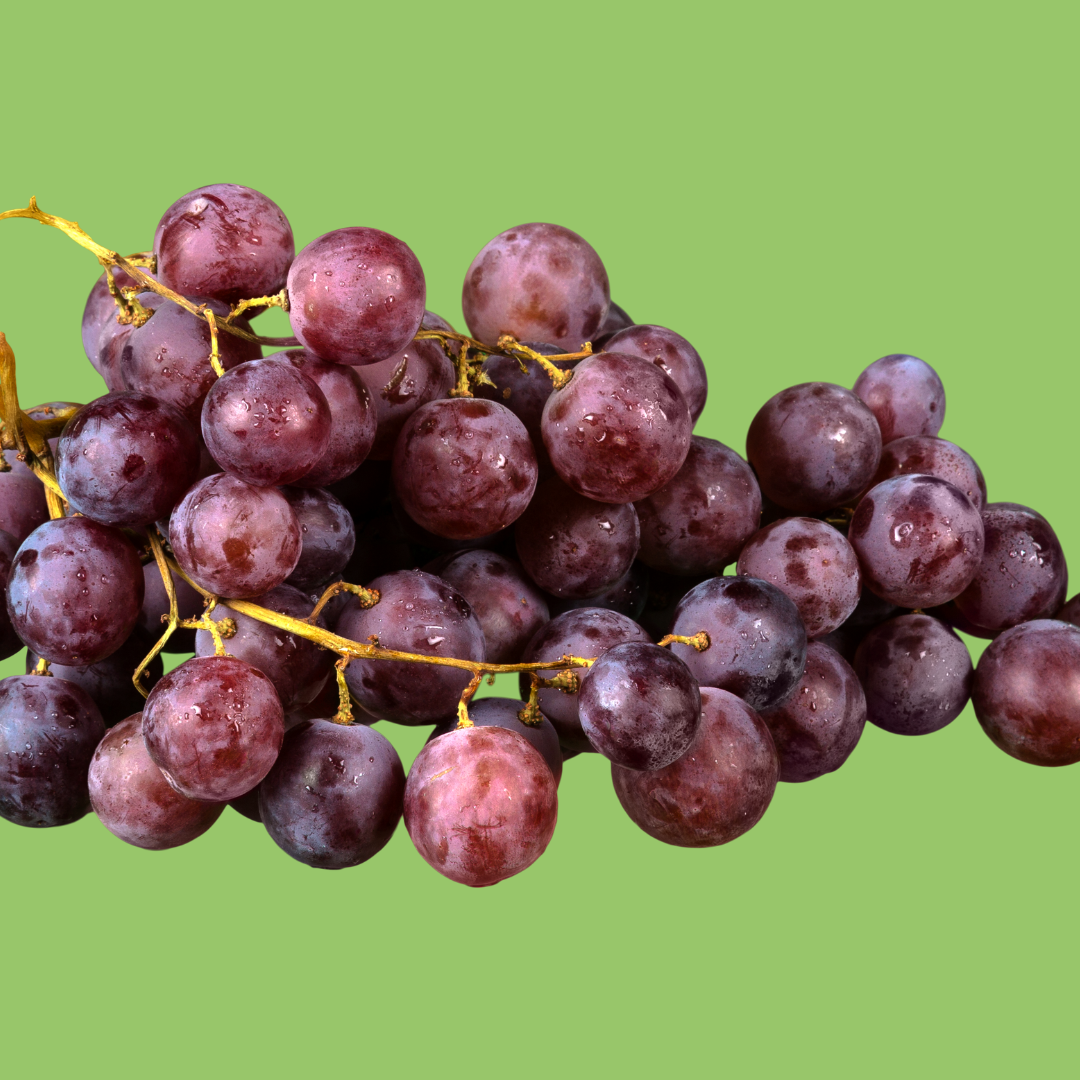Recently I (Leonie) ate some grapes for the first time since I was diagnosed with T1 diabetes. They shot my blood sugars through the roof! But that doesn't happen to everyone, so I thought I would have a look at why this might happen and the nutritional benefits. Here's what I found.
For people living with diabetes, every food choice matters. It's a balancing act to maintain blood sugar levels within a healthy range while still enjoying a diverse and nutritious diet. A common question that arises is whether certain fruits, such as grapes, are suitable for diabetics. Grapes are a popular fruit known for their sweet taste and numerous health benefits, but they also contain sugars. So, can diabetics eat grapes? Let's delve into this topic to provide a clear understanding.
Understanding Diabetes and Carbohydrate Consumption
Diabetes is a condition characterized by elevated blood sugar levels due to the body's inability to produce or effectively use insulin. Managing carbohydrate intake is crucial because carbs are broken down into glucose, directly impacting blood sugar levels. However, not all carbs are created equal. The quality, type, and quantity of carbohydrates consumed are important factors for blood sugar management.
Nutritional Profile of Grapes
Grapes are a low-calorie food packed with vitamins, minerals, and antioxidants. They are rich in Vitamin C, Vitamin K, and potassium. Grapes also contain beneficial compounds such as resveratrol, which has been linked to heart health and other positive effects. However, grapes are relatively high in natural sugars, which can raise concerns for individuals with diabetes.
The Glycemic Index (GI) Factor
The Glycemic Index (GI) is a useful tool for understanding how different foods affect blood sugar levels. Foods with a high GI score cause a rapid spike in blood sugar, while those with a low GI score have a slower, more gradual impact. Grapes have a medium GI score, meaning they can cause moderate increases in blood sugar levels. This doesn't mean grapes are off-limits for diabetics, but they should be consumed mindfully.
Portion Control and Moderation
The key to including grapes in a diabetic diet is portion control. Eating grapes in moderation, as part of a balanced diet, can allow individuals with diabetes to enjoy them without significantly impacting blood sugar levels. A small serving, such as a handful of grapes, is a sensible approach. It's also beneficial to pair grapes with a protein or healthy fat to slow the absorption of sugar into the bloodstream.
The Role of Grapes in a Diabetic Diet
Grapes can fit into the dietary pattern of someone managing diabetes, especially when careful attention is paid to overall carbohydrate intake. Their antioxidant properties and nutrient content make them a healthy choice in moderation. Diabetics should include a variety of fruits in their diet for optimal health, and grapes can certainly be part of that variety.
Practical Tips for Including Grapes in a Diabetic Diet
-
Monitor Portion Sizes: Stick to a small serving size to avoid excessive sugar intake. A good rule of thumb is about 15 grapes, which equals roughly one serving of fruit.
-
Pair with Protein or Fat: Combine grapes with a handful of nuts, cheese, or Greek yogurt. This combination helps slow down the release of glucose.
-
Spread Out Fruit Consumption: Distribute your fruit intake throughout the day to prevent spikes in blood sugar levels.
-
Keep Track of Blood Sugar Levels: Monitoring how grapes affect your blood sugar can help you understand how well you're managing your diabetes in relation to your diet.
-
Consult with a Healthcare Professional: Before making any significant dietary changes, especially when managing a condition like diabetes, it's important to speak with a dietitian or healthcare provider.
Research on Grapes and Diabetes Management
Several studies suggest that the antioxidants in grapes, particularly resveratrol, may improve glucose metabolism and insulin sensitivity. These findings support the idea that, when consumed in moderation, grapes can be part of a healthy diet for individuals with diabetes. However, more research is needed to fully understand the impact of grapes on diabetes management.
The Bottom Line
Can diabetics eat grapes? Yes, but like with all aspects of a diabetes diet, moderation and mindful eating are key. Grapes can be a nutritious addition to a balanced diet when eaten in controlled portions and paired with foods that help manage blood sugar levels. As with any dietary consideration for diabetes management, individual responses can vary, so it's important to monitor blood sugar levels and consult with healthcare professionals to tailor dietary choices to your specific needs.
Remember, managing diabetes doesn't mean you have to give up all the foods you love. It's about finding the right balance that keeps your blood sugar levels in check while still allowing you to enjoy a rich and varied diet. Grapes, with their sweet taste and nutritional benefits, can certainly be a part of this balance.

